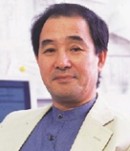

Plenary Lecture
Developing a Higher-Cycled Product Design CAE Model: The Evolution of Automotive Product Design and CAE

Professor Kakuro Amasaka
Graduate School of Science and Engineering
Aoyama Gakuin University
Japan
E-mail: kakuro_amasaka@ise.aoyama.ac.jp
Abstract: The technological challenge currently facing Japanese companies is simultaneously achieving Quality, Cost and Delivery (QCD) through innovative product design processes in order to come out on top in the face of worldwide quality competition. It is therefore necessary to undertake principle-based research on quality assurance in product design and development by utilizing the latest numerical simulation technology (Computer Aided Engineering, or CAE).
This development requires the more widespread application of CAE. To be useful, CAE processes must explore technological mechanisms and create a generalized model. The author believes that finding solutions to problems with unknown mechanisms may contribute to the creation of better generalized models. To achieve this aim, the advanced manufacturing industry has been faced with the urgent task of drastically reducing their product design times in order to respond quickly to changing consumer needs. One of the most important challenges for manufacturers is strengthening and enhancing CAE analysis in order to achieve high quality in product design processes that are also very brief. To address these issues, the author conducted research on a Higher-cycled Product Design CAE Model employing a Highly Reliable CAE Analysis Technology Component Model.
At present, advanced companies both in Japan and overseas working in the automobile and other industries are working to survive in today’s competitive market by expanding their global production. In this study, the author addresses the technological problems of product design bottlenecks at auto manufacturers. The research aims to grasp the dynamic behavior of technical problems using experiments as an empirical approach as well as numerical simulations.
Brief Biography of the Speaker: Dr. Amasaka became a professor of the School of Science and Engineering, and the Graduate School of Science and Engineering at Aoyama Gakuin University, Tokyo, Japan in April 2000. His specialties include: production engineering (Just in Time, JIT and Toyota Production System, TPS), multivariate statistical analysis and, reliability engineering.. Recent research conducted includes: “Science SQC, new quality control principle”, "Science TQM, new quality management principle”, "New JIT, new management technology principle”, “Customer Science”, “Kansei Engineering” and numerical simulation (Computer Aided Engineering, CAE).
Positions in academic society and important posts:He is the author of a number of papers on strategic total quality management, as well as the convener of JSQC, JOMSA, and other publications (e.g. POMS in USA and EurOMA in Europe). He has been serving as the vice chairman of JSPM (2003-2007) and JOMSA (2008-2010), the director of JSQC (2001-2003), and the commissioner of the Deming Prize judging committee (2002-present).Now, he is inaugurated as the vice chairman (2009-2010) and the chairman of JOMSA (2011-2012).
Patents and prizes: He acquired 72 patents concerned with quality control systems, production systems, and production engineering and measurement technology. He is a recipient of the Aichi Invention Encouragement Prize (1991), Nikkei Quality Control Literature Prizes (1992, 2000, 2001and 2010), Quality Technological Prizes (JSQC, 1993 and 1999), SQC Prize (JUSE, Union of Japanese Scientists and Engineers, 1976) and Kansei Engineering Society Publishing Prize (2002).